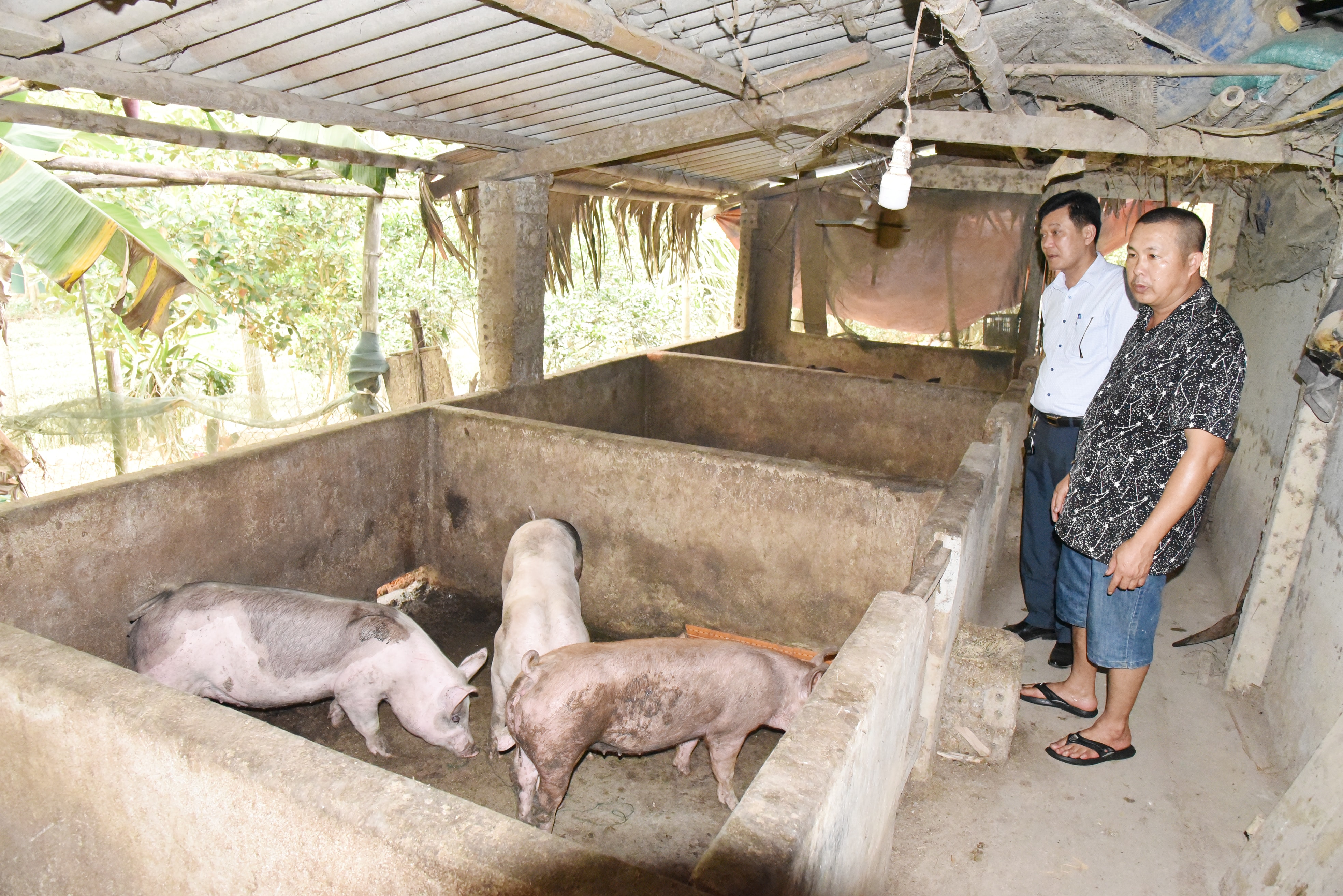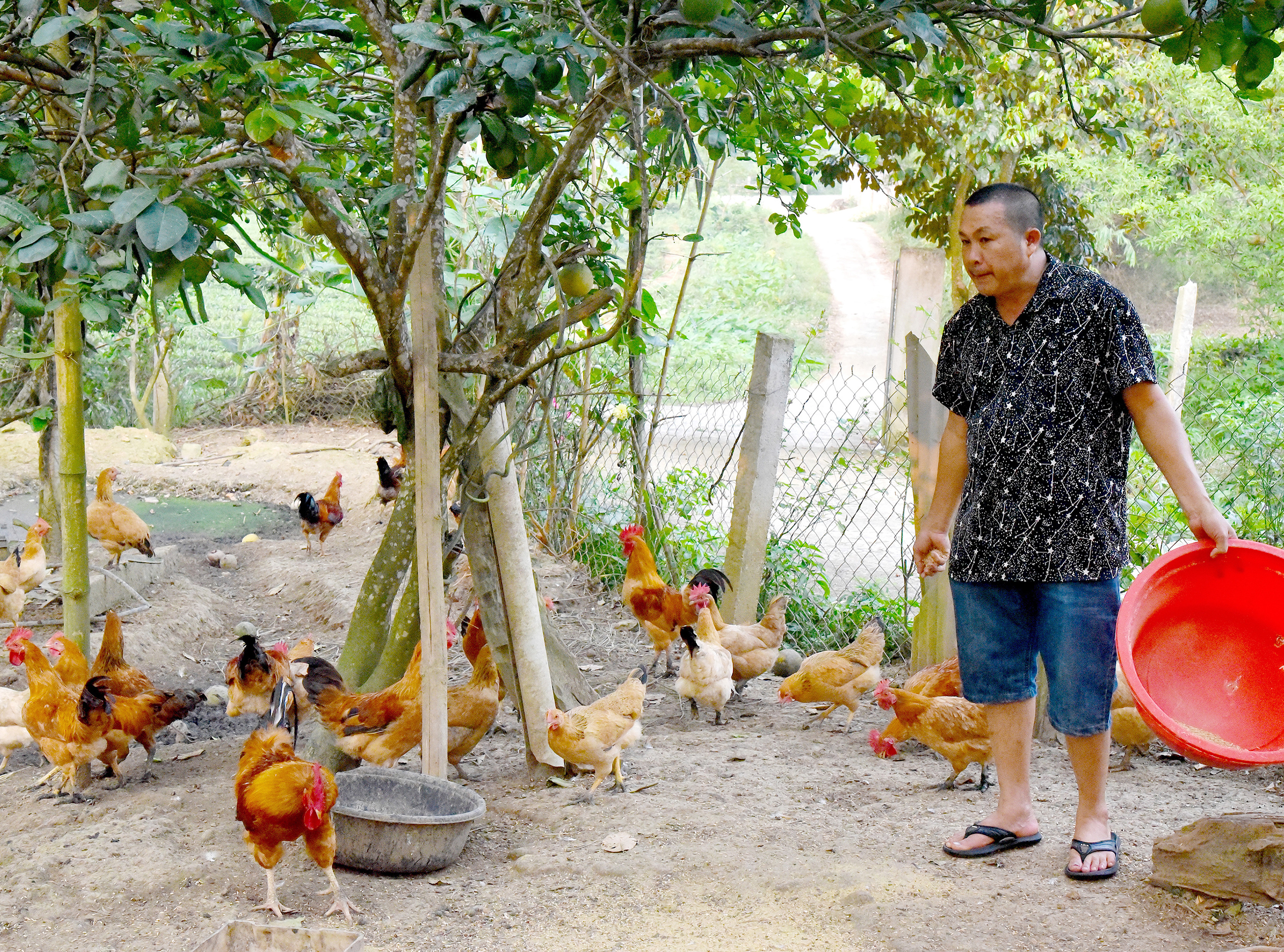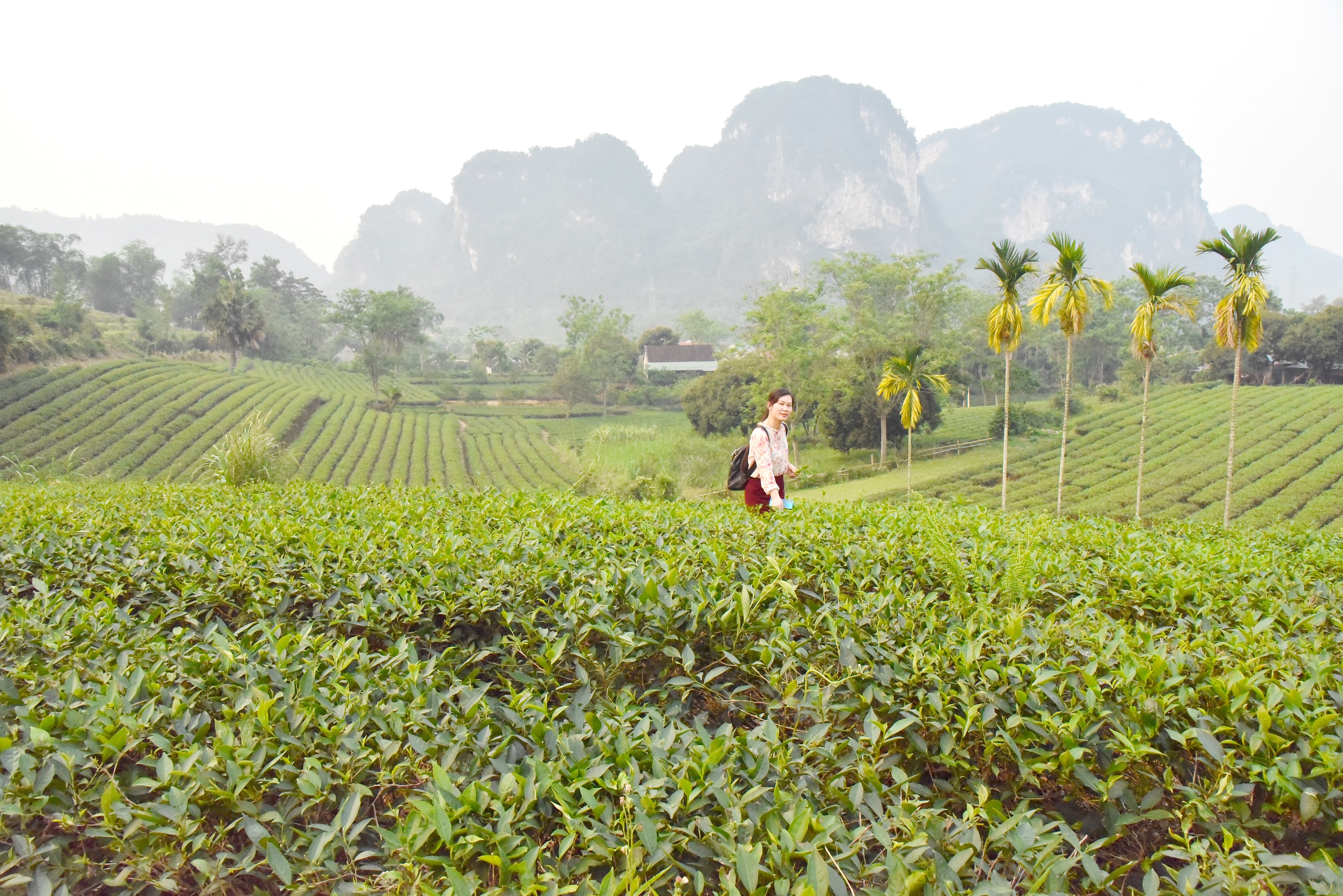The elderly farmer shares his experience in raising livestock and poultry.
(Baonghean.vn) - Faced with developments regarding disease outbreaks and fluctuating market prices, farmers in the mountainous district of Con Cuong are contemplating changes in their production methods, while also sharing experiences gained over decades of labor.
In Trung Thanh village, Yen Khe commune, Mr. Nguyen Duc Dien's family once developed livestock and poultry farming with herds of up to several hundred animals. Mr. Dien said that in 2022, he raised a herd of pigs that at one point reached nearly 40, including 6 breeding sows. He also raised chickens in a staggered manner, adding 150-300 broiler chickens every 1-2 months. In addition, he also raised 4-5 buffaloes and cows for fattening.
Mr. Dien said: “There was a time when, selling piglets from six sows, I was able to buy a car for my family. However, from the end of 2022 until now, my family's pig herd has dwindled to less than 20 pigs. Of those, only one sow remains. Besides African swine fever, the price of live pigs has continuously decreased, and the price of animal feed has been steadily increasing, forcing me to reduce the herd and I plan to take a break for a while soon.”
 |
Mr. Nguyen Duc Dien (in black shirt) said he will reduce the scale of his pig farming. Photo: HT |
Having spent more than half his life in Yen Khe and engaged in farming and livestock raising, Mr. Nguyen Duc Dien shared that both successes and failures in harvests, in choosing what animals to raise and what crops to grow, have given him invaluable experience. "Through my practical experience, I've realized that finding ways to limit disease outbreaks and increase productivity for crops and livestock is very difficult, sometimes involving financial and labor losses. But only through such efforts can we farmers minimize risks in production," Mr. Dien expressed.
Meeting Mr. Nguyen Duc Dien during the transitional period from winter to summer, around the end of February in the lunar calendar, the "veteran farmer" explained that this is a transitional time, very unfavorable for restocking livestock. Pointing to the rows of crape myrtle trees blooming with fragrant purple flowers in a corner of his hillside garden, he said, "Every time the crape myrtle flowers bloom, I temporarily stop restocking and rebuilding my livestock, whether cattle or poultry."
Explaining his experience, Mr. Dien said that the flowering season of the Sophora japonica tree falls between the end of February and the beginning of April in the lunar calendar. This is also the transitional period between seasons, when the weather changes erratically, alternating between hot and cold, along with drizzle, making it easy for diseases to spread among livestock. The erratic weather greatly affects the resistance of livestock, especially young animals.
 |
Each year, Mr. Nguyen Duc Dien raises three batches of millipedes, each batch consisting of about 300 birds, and only expands the flock after the transitional period between seasons, at the end of March and beginning of April in the lunar calendar. Photo: HT |
Over the years, raising livestock from buffaloes and cows to pigs, chickens, geese, and even pigeons, Mr. Dien said that he had repeatedly failed in breeding his herd during the season when the apricot blossoms bloomed. The animals often died or contracted diseases, becoming weak and stunted, significantly reducing productivity. "Therefore, for many years now, I stop breeding livestock and poultry during the apricot blossom season. I wait until the apricot blossom season is over, around mid-April in the lunar calendar, when the weather warms up, before considering buying more breeding stock. But in 2023, even after the apricot blossom season, I will temporarily stop increasing my livestock herd due to unfavorable market conditions and potential losses," Mr. Nguyen Duc Dien explained.
According to Mr. Dien, from the end of 2022 to the beginning of 2023, the price of live pigs plummeted from 80,000 VND/kg to the current price of only 50,000 VND/kg. In addition, the price of animal feed is constantly increasing, causing farmers to lose money the more they raise pigs.
To maintain his income, Mr. Dien shifted to intensive farming to increase the productivity of industrial tea plants by increasing the use of organic fertilizers and proactively managing the irrigation water supply for 1 hectare of tea.
 |
Mr. Nguyen Duc Dien's tea plantation, spanning over 1 hectare, provides a stable income. Photo: PV |
“I utilize animal manure, combined with other by-products such as straw, corn stalks, and other organic matter, to create compost for fertilizing the tea plants. I also invested in paving the road leading up to the tea hills with concrete and repairing the water pipes to ensure irrigation for the tea plantations. This year's spring tea harvest fetched a higher price than usual, around 1,000-1,500 VND/kg, and with increased yields, the five harvests per year, totaling about 6 tons, provide a significantly better income than livestock farming,” said Mr. Nguyen Duc Dien.
In Yen Khe commune, people are currently focusing on caring for tea plants and investing in organic fertilizers to increase productivity. Tea cultivation is now providing a higher income than livestock farming. The entire Yen Khe commune has 620 households growing tea with a total area of nearly 300 hectares, of which 17 hectares are under design and 276.89 hectares are in production, with a yield of 180 quintals/hectare.



